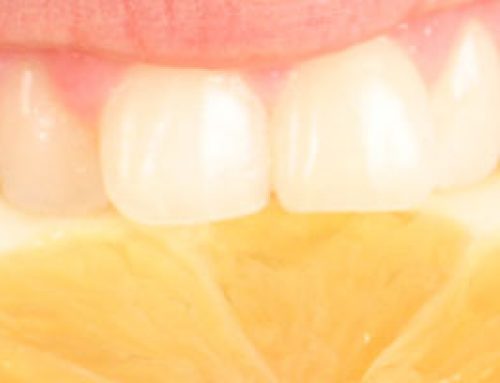The lifespan of well cared for porcelain veneers is about 10 years, with some lasting a bit longer. Caring for porcelain veneers is as simple as caring for your natural teeth. With proper attention, porcelain veneers will keep your smile looking flawless. Not properly caring for porcelain veneers can dramatically shorten their lifespan, requiring replacement much sooner than typically necessary. There are many reasons veneers may require replacement. The following overview will help you understand when veneers should be replaced and hopefully help you avoid some of these pitfalls.
Reasons Porcelain Veneers May Require Replacement
Porcelain veneers are durable and should last 10 or more years if cared for properly. That being said, even the best cared for veneers will likely need replacing due to normal wear. Though patients should expect to replace veneers around the 10- to 15-year mark, porcelain veneers may incur damage and require replacement sooner. Here are some reason veneers may need replacing:
- Damaged veneer: Porcelain is a strong material, which closely mimics the natural tooth, and like our natural teeth, veneers can become chipped or damaged. Chewing on hard plastic or metal pens, eating hard foods like corn nuts, or biting ice can chip and fracture porcelain veneers. Chipped, fractured veneers should be replaced as soon as possible to prevent damage to the underlying natural tooth.
- Decaying natural tooth: Sometimes the porcelain veneer itself is fine, yet will require replacement due to issues with the supporting tooth. This is because veneers are bonded to the front surface of a natural tooth, leaving the back of the tooth still vulnerable to decay and damage. If a cavity begins to develop on any of the exposed area of the tooth, the veneer may need to be removed for treatment and replaced once the tooth is restored.
- Worn veneer: As stated prior, porcelain veneers generally last 10 or more years. They become worn out over time and will need replacement sometime after 10 years of use.
- Chronic teeth grinding: Those who suffer from teeth grinding are more likely to require early replacement of veneers. The constant friction of grinding the teeth together will wear down the veneer and the natural tooth. Wearing a mouthguard at night can help prevent such wear.
- Tooth discoloration: Because porcelain veneers are stain resistant, they do not discolor like the natural teeth. This may result in a noticeable difference between the veneer and natural tooth, prompting replacement of the veneer for a better match.
- Loose veneer: The dental cement used to bond the veneer to the teeth can weaken over time, causing the veneer to loosen. If this happens, replacement will be necessary.
Practice Proper Care to Prolong the Lifespan of Your Veneers
Porcelain veneers do not require much more care than your natural teeth but by practicing these tips, you can help prolong the lifespan of your veneers.
- Practice good oral hygiene habits: Good oral hygiene is a must regardless of having porcelain veneers. Good oral hygiene habits include brushing at least twice a day for a full two minutes each and flossing at least once a day. Be sure to pay extra attention to the gum line where plaque and tartar are prone to buildup.
- Switch to a soft bristled toothbrush and non-abrasive toothpaste: Aggressively brushing with a hard bristled tooth brush, abrasive toothpaste, and too much pressure can cause damage to the veneer (and your teeth’s natural enamel). Switch to a soft-bristled toothbrush and non-abrasive toothpaste.
- See your dentist for regular check-ups: Regular check-ups and cleanings are vital to maintaining oral health and prolonging the life of your veneers.
- Avoid chewing on hard items: Chewing on hard items can chip or fracture veneers. Avoid biting hard items to prevent unwanted damage.
- Treat teeth grinding: If you suffer from teeth grinding, you will want to seek treatment to prevent damage to your veneers and teeth.
Schedule a Consultation
For more tips or information regarding porcelain veneers and replacement, schedule a consultation with Dr. Charles E. Sutherland.






